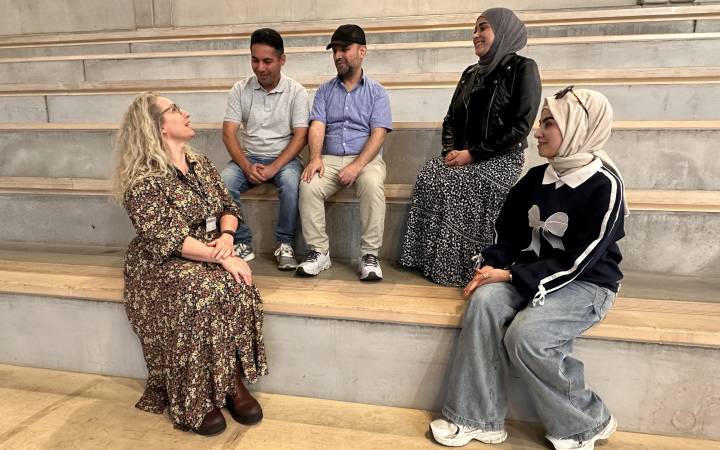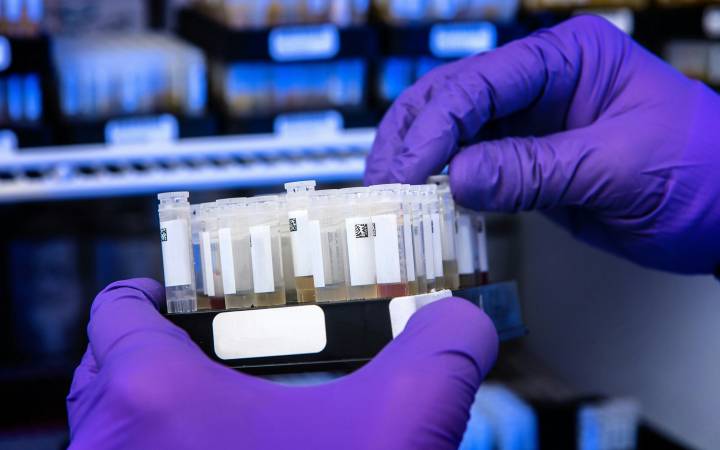Collaborative project co-led by Kingston School of Art academic examines the role of the natural environment in migrant integration in the United Kingdom
Posted Tuesday 21 June 2022
 £199,350 was awarded to deliver the project, entitled Nature-based integration: Connecting communities with/in the natural environment. Picture credit - Leah Kelley.
£199,350 was awarded to deliver the project, entitled Nature-based integration: Connecting communities with/in the natural environment. Picture credit - Leah Kelley.
A new study co-led by a Kingston School of Art researcher is exploring the role of the natural environment in the integration of migrants into UK communities and collaborating with policymakers, practitioners, and communities to support this work.
The two-year project brings together evidence from previous studies, integration initiatives and creative practice, alongside innovative new place-based research in urban, peri-urban, and rural sites across the UK. It will result in the creation of policy and practice tools that support engagement with the natural environment as a resource for developing inclusive, connected communities.
The Nuffield Foundation, in collaboration with the British Academy, has awarded £1.1 million to six research teams that will inform policy and practice on how communities can improve social well-being across the UK. As part of the Understanding Communities Scheme, £199,350 was awarded to deliver the project, entitled Nature-based integration: Connecting communities with/in the natural environment.
Kingston School of Art's Dr Azadeh Fatehrad and Dr Davide Natalini of Anglia Ruskin University will conduct the study in collaboration with the Department for Levelling Up, Housing and Communities, Blackburn with Darwen Borough Council, and other local and national partners.
Dr Fatehrad said the idea for the research had, in part, been inspired by the Covid pandemic and the vital impact green spaces had on her while in partial lockdown. "Collectively, as a nation, we realised during Covid just how important the physical environment around us is to our wellbeing and sense of place," she explained. "We wanted to explore how we can use parks, woodlands and rivers as areas of integration, focusing on the various processes of interaction and adaptation when migrants arrive and begin carving out a new life in a different country."
The research team will first create a framework of existing knowledge, then, working with communities in three case study locations, produce deep maps – a multi-layered mapping approach that involves capturing the contextual experience of a place – of nature-based integration for each site.
Anglia Ruskin University academic Dr Davide Natalini said the project had been developed with interdisciplinarity and co-production at its heart. "The project is built on our individual strengths, and, most importantly, shared passion to support community development and the natural environment," he said. "Our collaboration will yield novel insights on how nature can support integration."
With 14 percent of residents born overseas, including the project team, migrants comprise a significant portion of UK society. The natural environment can offer valuable opportunities for establishing belonging in local places and communities and improving health and wellbeing. The research project aims to evidence and support this.
Kingston School of Art's Associate Dean Research & Enterprise, Maria Chatzichristodoulou, said the research project addresses urgent social issues using art-based methods to engage people and communities. "Projects such as this have the potential to make a significant difference to the lives of migrant-background communities in the UK and around the world, and aim to use the knowledge generated to inform government policy, "she said.
- Find out more about research at Kingston University.
Contact us
General enquiries:
Journalists only:
- Communications team
Tel: +44 (0)20 8417 3034
Email us



